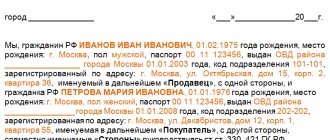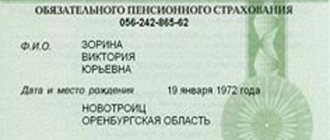When familiarizing yourself with the Civil Code, a person who does not have close acquaintance with jurisprudence arises many different questions. The most important, from the point of view of the average person, relate to the right to real estate, including land. One of these “interesting” issues is easement .
Article 274 of the Civil Code of the Russian Federation is very important for neighboring owners, since it is it that will regulate their land relations. Thus, one has the right to demand from another the opportunity to use the territory of his site. Such a right of use is called limited, and specifically in this case, it is called an easement.
However, what exactly do these lengthy phrases demonstrate? Almost nothing without further explanation. You will find them, that is, additional explanations, in this article.
Registration of easement for a land plot
Sometimes it becomes necessary to use someone else’s land plot - for example, for a permanent passage through a neighbor’s land plot to one’s own house or garage. Other needs arise in rural areas and in the private sectors. For example, household communications usually occur by connecting to a central network. To do this, additional branches of the water pipeline are laid to it, poles are installed for the power line, etc., but what if the only way to the central line lies through the neighboring property? There is only one way out - to use it both for the installation of linear objects and for their subsequent repair.
The legalization of the right of limited use, since it is established simultaneously for everyone and, therefore, is public, is carried out by state bodies or local governments, depending on whose decision such an encumbrance was created.
State duty: we pay correctly!
The procedure for paying the state fee for registering rights to real estate and calculating its size still raise questions among those who are faced with such a need. Let's try to figure out these issues together.
According to the current tax legislation, a state fee is charged for state registration of rights. The procedure and deadlines for paying the state duty are established by Art.
federal government bodies, government bodies of constituent entities of the Russian Federation and local government bodies when they apply for the performance of legally significant actions; 2) individuals recognized as low-income in accordance with the Housing Code of the Russian Federation - for carrying out actions for state registration of rights to real estate and (or) TAX DECLARATION AND TAX CONTROL Section V.1.
State registration of rights that arose before the entry into force of the Federal Law “On Registration of Rights to Real Estate and Transactions with It” (hereinafter referred to as the Law), carried out at the request of the copyright holder (with the exception of rights to land plots of agricultural land).
Conditions and procedure for registering an easement on a land plot. Is it necessary in case of contract cancellation?
Establishing an easement requires going through a special procedure provided for by law and the state. This is the procedure for registering a land plot. On what basis is this procedure carried out? What nuances do you need to know before resorting to registering a private or municipal easement?
In this article we will consider all the issues that accompany the registration process and its nuances.
- Do I need to register?
- When concluding an agreement for a period of up to 3 years
- Procedure: how to register?
- Drawing up an application
- Collection of documents for individuals and legal entities
- Amount of state duty and payment procedure
- Where to contact?
- Rosreestr
- Public services
- MFC
- Terms of consideration
- In case of cancellation of the easement agreement
When concluding an agreement for a period of up to 3 years.
Legal services for business
- Drawing up and checking contracts
- Subscriber legal services
- “Re-registration” of joint-stock companies
- Representation in court (arbitration court) for debt collection
- Registration of enterprises
- Representation in court (arbitration court) to appeal against actions of authorities
- Representation in court (arbitration court) in real estate disputes
- Representation in court (arbitration court) on land matters
- Representation in court (arbitration court) in civil cases
Re-registration of joint stock companies.
Amount of state duty for registration of rights to real estate in 2019
1.
For state registration of rights to an enterprise as a property complex, contracts for the alienation of an enterprise as a property complex, as well as restrictions (encumbrances) on rights to an enterprise as a property complex - 0.1 percent of the value of the property, property and other rights included in the enterprise as a property complex , but not more than 60,000 rubles;
2.
For state registration of rights, restrictions (encumbrances) on rights to real estate, contracts for the alienation of real estate, with the exception of legally significant actions provided for in paragraphs 1, 3 - 7, 9 - 12: for individuals - 2,000 rubles; for organizations - 22,000 rubles;
3.
For state registration of the right of common shared ownership of owners of investment shares to real estate constituting a mutual investment fund (acquired for inclusion in the mutual investment fund), restrictions (encumbrances) of this right or transactions with this property - 22,000 rubles;
4.
For state registration of a share in the right of common ownership of common real estate in an apartment building - 200 rubles;
5.
For state registration of an individual’s ownership of a land plot intended for personal subsidiary farming, dacha farming, gardening, gardening, individual garage or individual housing construction, or for a real estate object being created or created on such a land plot - 350 rubles;
6.
For state registration of rights, restrictions (encumbrances) of rights to land plots of agricultural land, transactions on the basis of which rights to them are limited (encumbered) - 350 rubles;
7.
For state registration of a share in the right of common ownership of agricultural land plots - 100 rubles;
8.
For making changes to the records of the Unified State Register of Rights to Real Estate and Transactions with It, with the exception of legally significant actions provided for in paragraph 13: for individuals - 350 rubles; for organizations - 1000 rubles;
9.
For state registration of a mortgage, including entering into the Unified State Register of Rights to Real Estate and Transactions with It a record of a mortgage as an encumbrance of rights to real estate: for individuals - 1,000 rubles; for organizations - 4,000 rubles;
9.1
For making changes to the records of the Unified State Register of Rights to Real Estate and Transactions with It in connection with an agreement to amend or terminate a mortgage agreement: for individuals - 200 rubles; for organizations - 600 rubles;
Read more: How to specify the reimbursement of utilities in the contract
If a mortgage agreement or an agreement including a mortgage agreement ensuring the fulfillment of an obligation, with the exception of an agreement giving rise to a mortgage on the basis of law, is concluded between an individual and a legal entity, the state fee for legally significant actions provided for in clauses 9 and 9.1 of this article, is charged in the amounts established for individuals;
10.
For state registration:
- change of the mortgagee due to the assignment of rights under the main obligation secured by a mortgage, or under a mortgage agreement, including transactions for the assignment of rights of claim, including the entry into the Unified State Register of Rights to Real Estate and Transactions with It of a record of the mortgage carried out upon a change of mortgagee , — 1,600 rubles;
- change of the owner of the mortgage, including transactions for the assignment of rights of claim, including the entry into the Unified State Register of Rights to Real Estate and Transactions with It of a record of the mortgage carried out when changing the owner of the mortgage - 350 rubles;
11.
For state registration:
— agreements for participation in shared construction: for individuals — 350 rubles; for organizations - 6,000 rubles;
— agreements to amend or terminate the agreement for participation in shared construction, assignment of rights of claim under the agreement for participation in shared construction, including making appropriate changes to the Unified State. register of rights to real estate and transactions with it - 350 rubles;
12.
For state registration of easements: in the interests of individuals - 1,500 rubles; in the interests of organizations - 6,000 rubles;
13.
For making changes and additions to the mortgage registration record - 350 rubles;
14.
For the re-issuance to the right holders of a certificate of state registration of the right to real estate (in replacement of the lost one, which has become unusable, in connection with the entry in the Unified State Register of Rights to Real Estate and Transactions with It, an entry on the right of changes, including corrections in this records of a technical error, with the exception of errors made through the fault of the body carrying out cadastral registration, maintaining the state real estate cadastre and state registration of rights to real estate and transactions with it): for individuals - 350 rubles; for organizations - 1,000 rubles;
Urgent and permanent easements. Gratuitous and paid easements
According to the terms of the law, any land easement that does not contain information about its duration in any fundamental documents is recognized as perpetual. Such documents may be:
- an agreement concluded between the parties to establish this type of restriction.
- a regulatory legal act that establishes the need to establish this easement.
- a court decision if the parties for some reason were unable to independently come to a decision on the advisability of establishing this type of restriction.
Separately, it is worth paying attention to the fact that a perpetual land easement will not always be such. In some cases, the exact duration of the easement is established at the level of federal legislation. For example, when it comes to the reclamation of a site, the easement will not have temporary status, since this will harm the state.
According to the conditions established by law, an easement is a free right in which the user of someone else's land does not have to pay for their passage or passage through this property.
The exception is the right to operational management, in which the easement is compensated. The cost of personal easements is calculated according to the land tax on real estate that comes into use.
Differences between temporary and permanent easements
The period during which this encumbrance is valid is not tied to the users of easements. In other words, after the death of the owner of the plot on which the restriction is established, it retains legal force. The same applies to changing the owner of land.
The main differences between permanent and term easements are outlined in the table below.
| Feature used for comparison | Perpetual easements | Temporary easements |
| Grounds for removing the encumbrance | If there are legal grounds:
| Expiration of the validity period specified in the documents. |
| Validity | It has legal force until it is no longer needed (the period is not specified in the documents, the wording “perpetual easement” is acceptable). | Determined by an authorized official or by agreement of the parties and indicated in the relevant document. |
A citizen on whose land an encumbrance has been established has the right to demand payment from the recipient of the easement for the use of the territory.
If the parties are unable to resolve the dispute peacefully, it is permissible to file a corresponding claim in court.






